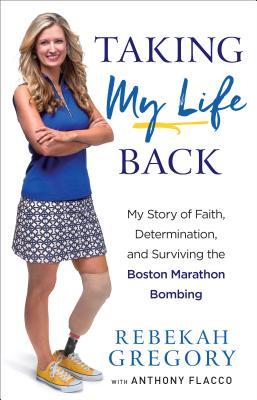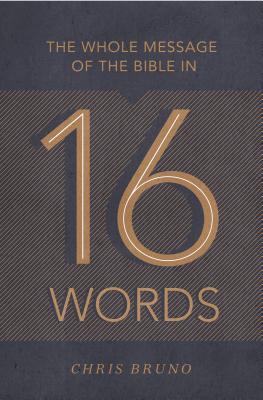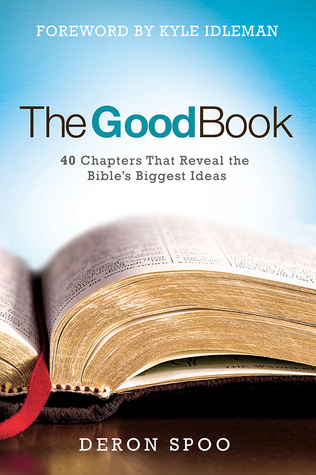The Good Book: 40 Chapters That Reveal the Bible's Biggest Ideas. Deron Spoo. 2017. David Cook. 397 pages.
From chapter one:
You’re more like God than anything else he created. At times you might
feel worthless. Perhaps this is why the first chapter of the Bible sends
the unmistakable message that you are priceless. Even on days when you
feel barely human, you are, in fact, more like your Creator than
anything else in existence.
Premise/plot: This book is meant as a guidebook to the Bible for spiritual ignostics; the term describes those "with no God history and no Christian memory." In other words, those new believers or near believers that have not grown up in the church or in Christian culture. Spoo has selected forty chapters of the Bible to serve as the "basis of the faith we know as Christianity…" and which are "absolutely essential for understanding the big ideas of the Bible."
The book is divided into eight sections with five chapters apiece. Each chapter is prefaced with one of the forty chapters of Scripture. So at the very, very least--if readers don't skim the reprints--one will have read forty whole chapters out of the Bible. Spoo encourages his readers to read these scriptures before and after his "brief exploration" of each passage.
The forty chapters: Genesis 1, 3, 6, 12, 22; Exodus 3, 14, 20; Judges 16; 1 Samuel 17; Job 1; Psalm 23, 51, 139; Proverbs 1; Isaiah 53; Jeremiah 1; Daniel 3, 6; Jonah 1; John 1, 3; Luke 2, 8, 15; Matthew 5, 6, 7, 28; Mark 15; Acts 1, 2, 9, 10; Revelation 22; Romans 8; 1 Corinthians 13; Galatians 5; James 1; 1 John 3.
My thoughts: I have very mixed feelings on The Good Book.
Spoo seems to be suggesting that new believers need to read books about the Bible more than they need to read the Bible itself--that handing a new believer, a new disciple, a copy of this book, for example, would be more beneficial than handing them the very Word of God. He assumes that they simply are not ready for the Bible.
Spoo promises much in the introduction. "After understanding these chapters, you’ll be able to recognize the rhythm of the Scriptures and tap your toes to the cadence." Also, "Finally, I encourage you to reread the Bible chapter with the benefit of knowing more about the context and content." I was led to believe that Spoo's exploration of these passages would be MEATY, providing actual content and context. I didn't find that to be the case.
Though the introduction seems to be God-centered, gospel-centered, Spoo has a tendency to wander into it's-all-about-you land. In some of his discussions, the focus doesn't seem to be on God but on YOU and what YOU can get from the passage to make you feel warm and fuzzy.
But. My main issue with this book, however, is the dominance of stories, more stories, even more stories which overbalance any focus on the text of Scripture itself. There may be the barest of backbones of context--capable of being detected within each chapter--but, the focus isn't on the Word of God, isn't on the divine or human author of the book, isn't on what it meant to the original audience or even what it means today to you and me. If you're clueless--truly clueless--about the Bible, about the faith, hearing anecdotes and personal stories that have just the smallest link to the Scripture passage itself will not strengthen your faith and shine light on your path.
For example, what in the world does his growing of jalapeños in his garden have to do with Galatians 5?!?! There were times I wanted to shout STOP TALKING ABOUT YOURSELF AND GET TO THE GOOD STUFF ALREADY.
I grow jalapeños. My love for cultivating peppers is a product of my
Texas upbringing. I enjoy every aspect of the pepper-growing experience.
The starter plants must be pruned and planted deep. The backyard must
be guarded against rabbits—protection is provided courtesy of my
schnauzer. The first white buds that appear on the plants inform me that
the hot pain of peppers is but a few weeks away. And because I plant a
dozen or so plants, it isn’t long before the production of peppers
outpaces my capacity to eat them. That’s when the pickling begins. I
don’t grow jalapeños because I enjoy the plants themselves. Nor do I
grow jalapeños for the beauty of the blossoms. I grow them because I
want the produce; I want the fruit.
Some of his 'extra' stuff is slightly more on-topic--this example is also from Galatians 5.
Have you ever penned an angry letter? Abraham Lincoln had a practice worth imitating. After writing an angry note, he would set it aside for several days. After his emotions had cooled, he would rewrite the letter, revising any rough tones in his correspondence. In many cases, Lincoln never sent the letter at all. In a day when we’re tempted to fire off an angry electronic message, we need to develop this kind of restraint. However, there are occasions when we need to let others know exactly how we feel. Galatians is the angry letter of the New Testament. The apostle Paul, its author, was a passionate follower of Jesus and a bold leader in the early Christian community. Paul’s teaching about the love of God was simple and direct. Paul used the word grace to describe God’s act of initiating a relationship with humanity. And the term faith was used to describe our best reaction to the love of God. God reaches. We respond. The result is relationship. Simple, right?
One passage got me flustered and thinking. I didn't agree with his choice, by the way, but it did get me thinking about MY choice.
If someone told me I could choose only one tiny piece of the Bible to
read for the rest of my life, I would unhesitatingly choose Matthew 5,
6, and 7. Commonly called the Sermon on the Mount, these three chapters
offer nitty-gritty guidance on the daily experiment of following Jesus.
Stranded here on the island of earth, our call is to pursue a life
pleasing to God. Jesus said many things in these chapters that
challenged the conventional religion of his day. After two thousand
years, his wisdom still surprises.
I'll swing over to the positive side for a minute. He said two things in the introduction that I wholeheartedly agree with.
1) Reject the tendency to be satisfied with your current understanding of
the Bible. Refuse the temptation to think that what you grasp of the
Scriptures today is somehow enough.
2) Remember that the ultimate benefit of reading the Scriptures isn’t
greater familiarity with the Bible but deeper intimacy with God.
And there were plenty of solidly true statements for new believers to digest within the book itself.
For example,
- Our greatest challenge with God’s commands isn’t understanding them but obeying them.
- The wishful thinking that following Christ automatically makes the rest
of life convenient is a cultural concept, not a biblical one.
- Challenge, not comfort, is the lifestyle of those who wish to follow God.
- The truth may be summed up like this: thinking we’re strong is a weakness, but acknowledging our weakness makes us stronger.
In conclusion, IF I bought the premise that new believers need books for new believers and not the Word of God itself, would I hand them Spoo's The Good Book, OR, would I choose another book instead? That's a question I think is worth asking--and answering. I don't think it would be my top choice--or even in my top five.
© Becky Laney of
Operation Actually Read Bible















